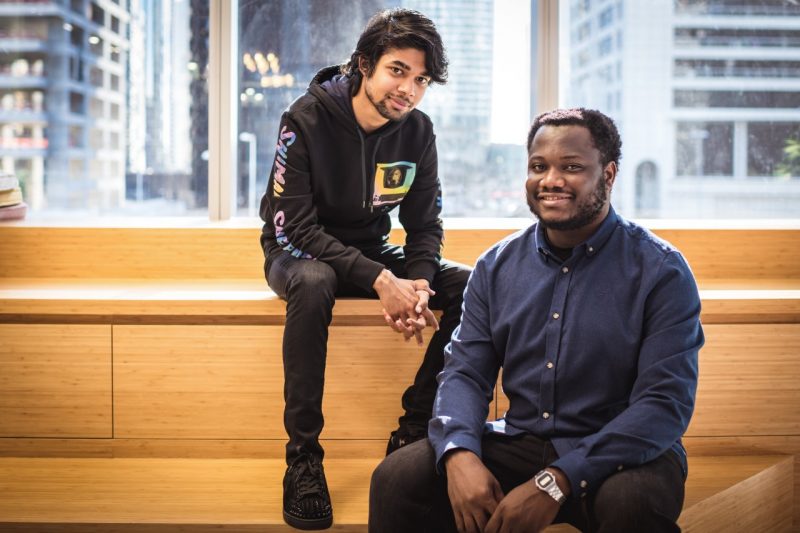AI Health Company Bevel Secures $10M Series A Funding

In an era where personal health tracking often results in a fragmented collection of data points from various devices and applications, the ability to synthesize this information into actionable insights remains a significant challenge. Smartwatches report sleep, fitness apps log steps, and nutrition apps tally calories, yet a unified understanding of how these elements interrelate has largely been absent. Bevel, a New York, based startup, is addressing this crucial gap with its AI health companion, aiming to be the missing piece in the global shift toward proactive health management.
The company recently announced a significant milestone, having raised a $10 million Series A funding round from General Catalyst. This investment is earmarked to scale its innovative AI health companion, which excels at unifying data from a user’s existing wearables and daily habits across critical areas such as sleep, fitness, and nutrition, transforming them into personalized insights. This substantial funding follows a breakout period for the two-year-old health tech company. Bevel has reported an impressive eightfold growth within the past year, now serving over 100,000 daily active users, establishing itself as one of the fastest-growing health applications in the U.S. User engagement is notably high, with the average user opening the app eight times per day, and retention rates remarkably remaining above 80% at 90 days, a rare achievement in a category often plagued by user churn after short-term goal attainment. Co-founder and CEO Grey Nguyen emphasizes this philosophy, stating, “We think of health as a continuous journey, not a phase. Bevel meets you where you are, learns from your habits, and helps you make small changes that compound over time.”
Amidst a crowded market of health companion brands such as Whoop, Oura, and Eight Sleep, Bevel distinguishes itself through its accessibility and software-first approach. Co-founder and board member Aditya Agarwal highlights that many competing health apps necessitate the purchase and maintenance of accompanying hardware devices, which can be prohibitively expensive for many. Bevel circumvents this barrier by being purely software-based, offering users the flexibility to utilize the wearables they already own. Agarwal notes, “A $500 ring or band is out of reach for a lot of people. We already generate so much valuable health data from our primary wearables and other everyday sources. We wanted to make something that was more accessible across a much larger set of people.” Bevel operates on a subscription model, costing users $6 monthly or $50 annually.
Unlike typical wellness applications that often narrow their focus to a single aspect like steps, sleep, or nutrition, Bevel integrates these diverse data streams into a singular, cohesive experience. It seamlessly connects with popular wearables through Apple Health, including Apple Watch, and directly syncs with continuous glucose monitors like Dexcom and Libre. Integrations with Garmin and other platforms are currently in development. All this aggregated information feeds into Bevel Intelligence, the company’s proprietary core software. This advanced system analyzes key data points and continuously adapts its recommendations to each individual user, learning how their unique body responds to various factors such as stress, movement, and nutrition.
The genesis of Bevel is rooted in personal challenges. Before co-founding Bevel in late 2023, Grey Nguyen, who previously led products at Sam Altman–backed Campus, and co-founder/CTO Ben Yang, an expert in machine learning from Opendoor, were immersed in building stablecoin infrastructure for enterprises. The intense demands of startup life led to Nguyen neglecting his health, resulting in chronic back pain that persisted undiagnosed for months despite his use of wearables and regular doctor visits. “Nothing pointed out what was actually causing my back pain, not even my doctors, which is crazy, right?” Nguyen recounted. “That’s when this idea came up. Everyone’s life is so nuanced. There are so many small things you do that stack on each other and, over time, create a chronic condition.” He began to meticulously piece together his health data, tracking sleep, nutrition, and steps, eventually realizing that seemingly disparate issues, such as low mobility from prolonged sitting, sleep problems linked to his mattress setup, and sodium-heavy meals contributing to inflammation, had cumulatively played a role. Similarly, Aditya Agarwal, a former CTO at Dropbox and an early engineer at Facebook, underwent his own health transformation after years of demanding work led to burnout. His recovery involved manually logging his data through spreadsheets and connected trackers to rebuild his energy. Upon connecting with Ben and Grey, he recognized a shared vision for what they were building with Bevel and joined the team. Agarwal, who is also a partner at South Park Commons, stated, “We shared the same North Star, which is helping people become more intelligent about their own health.” South Park Commons, alongside General Catalyst, had previously invested $4 million into Bevel earlier in the year.
With this fresh capital infusion and a strategic commitment to not venture into hardware development, Bevel plans to expand its team and horizontally integrate into more services and partnerships, further democratizing access to proactive health intelligence. Neeraj Arora, managing director at General Catalyst, affirmed this vision: “Bevel’s mission to democratize health through intelligence and design deeply resonates with us. The level of engagement they’re seeing from users is remarkable, and it’s become part of people’s daily lives — not just another app. We’re excited to support this team as they build the future of personal health.”
You may also like...
Be Honest: Are You Actually Funny or Just Loud? Find Your Humour Type

Are you actually funny or just loud? Discover your humour type—from sarcastic to accidental comedian—and learn how your ...
Ndidi's Besiktas Revelation: Why He Chose Turkey Over Man Utd Dreams

Super Eagles midfielder Wilfred Ndidi explained his decision to join Besiktas, citing the club's appealing project, stro...
Tom Hardy Returns! Venom Roars Back to the Big Screen in New Movie!

Two years after its last cinematic outing, Venom is set to return in an animated feature film from Sony Pictures Animati...
Marvel Shakes Up Spider-Verse with Nicolas Cage's Groundbreaking New Series!

Nicolas Cage is set to star as Ben Reilly in the upcoming live-action 'Spider-Noir' series on Prime Video, moving beyond...
Bad Bunny's 'DtMF' Dominates Hot 100 with Chart-Topping Power!

A recent 'Ask Billboard' mailbag delves into Hot 100 chart specifics, featuring Bad Bunny's "DtMF" and Ella Langley's "C...
Shakira Stuns Mexico City with Massive Free Concert Announcement!

Shakira is set to conclude her historic Mexican tour trek with a free concert at Mexico City's iconic Zócalo on March 1,...
Glen Powell Reveals His Unexpected Favorite Christopher Nolan Film

A24's dark comedy "How to Make a Killing" is hitting theaters, starring Glen Powell, Topher Grace, and Jessica Henwick. ...
Wizkid & Pharrell Set New Male Style Standard in Leather and Satin Showdown

Wizkid and Pharrell Williams have sparked widespread speculation with a new, cryptic Instagram post. While the possibili...





